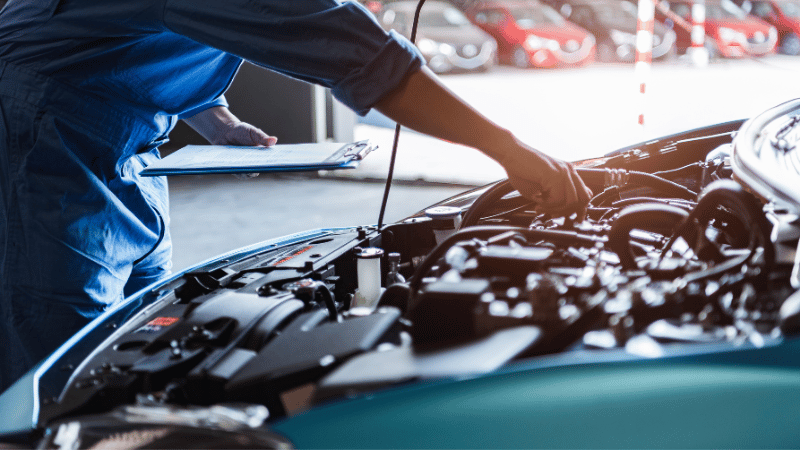Palm Coast Local
Locals Helping Locals

6 Tips for New Florida Residents: How Long Can A Car Really Last in Florida?
- Details
- Written by: Palm Coast Local
- Parent Category: Business Blog
- Category: Home Maintenance & Repairs

Expert Advice and Seasonal Tips from Mobil Mark if you are a new Floridian or first time car owner.
Florida’s Climate: The Ultimate Car Test
When you ask how many miles a car can truly go, most experts agree it’s not unusual to see vehicles reaching 200,000 miles—and with proper care, even 300,000 to 400,000 miles isn’t out of reach.
But Florida’s subtropical climate can turn that goal into a challenge. Between the blazing heat, humidity, and salt-laden coastal air, your car’s systems endure constant stress. Even if everything looks fine, preventative care is non-negotiable here.
1. Stick to Your Maintenance Schedule — and Then Some
Oil, filters, belts, and brakes wear faster in hot weather. Follow your manufacturer’s schedule, but don’t hesitate to service early.
A few extra oil changes a year are far cheaper than engine repairs. Florida heat also thins oil faster, so choose the grade listed for “severe driving conditions” if your manual offers that option.
2. Fluids Are the Lifeblood of Longevity
In Florida, fluids break down faster than you think. Check and replace these regularly:
-
Engine oil
-
Transmission fluid
-
Brake fluid
-
Coolant/antifreeze (vital for summer)
-
Power steering fluid
-
Windshield washer fluid
Each fluid plays a part in keeping your vehicle cool, lubricated, and efficient.
3. Inspect Belts, Hoses, and Seals Frequently
Rubber parts crack more quickly under Florida’s sun. A belt or hose failure can cause overheating and expensive damage. Inspect them every oil change and replace them at the first sign of wear — not after they fail.
4. Avoid Stressful Driving Habits
Hard Acceleration & Braking
Frequent stop-and-go driving or “punching the gas” wears out your transmission, brake pads, and suspension faster than you realize. Rapid acceleration floods the engine with extra fuel and heat, putting stress on pistons and seals, while sudden braking overheats the rotors and burns through pads. Over time, this leads to jerky shifting, warped rotors, and poor fuel efficiency — issues that worsen in Florida’s high heat.
Idling with the A/C Running
Letting your car idle for long periods while the air conditioning runs might seem harmless, but it forces your cooling system and battery to work overtime. With little airflow through the radiator, the engine runs hotter, and the A/C compressor adds even more strain. In Florida’s climate, this habit quickly wears belts, drains fuel, and shortens component life.
Overloading the Vehicle
Carrying more weight than your vehicle is rated for — whether tools, luggage, or towing beyond capacity — overloads your suspension, tires, and drivetrain. Your brakes must work harder, the engine runs hotter, and your tires can wear unevenly or even fail. In our heat, that combination can lead to tire blowouts or transmission stress.
Why it matters: Each of these habits quietly builds heat, friction, and strain that compound over time. In Florida’s extreme weather, that damage accelerates — shortening your car’s life and driving up long-term repair costs.
5. Guard Against Rust, Sun, and Salt
Even inland drivers in Florida face UV and moisture exposure. Protect your car by:
-
Washing often (especially the undercarriage)
-
Waxing or ceramic-coating twice per year
-
Using a sunshade and parking in shade when possible
-
Parking your car in a garage whenever you can — it significantly reduces UV and moisture exposure, preserving paint, rubber, and interior materials.
A quick rinse after a beach visit can save your paint and underbody.
6. Seasonal Check-Ins That Save You Later
Twice a year, give your car a mini “health check”:
-
May: Summer readiness (battery, A/C, coolant, belts)
-
August/September: Storm-season prep (wipers, tires, charging system)
These small efforts help you avoid breakdowns when you least expect them.
Cars today can go the distance — but Florida drivers have to stay proactive.
As Mobil Mark often says: “It’s not about how old your car is. It’s about how well you’ve treated it.”
Keep up with your maintenance, stay aware of how Florida’s weather affects your vehicle, and you can keep it cruising far beyond what most expect.
Add comment